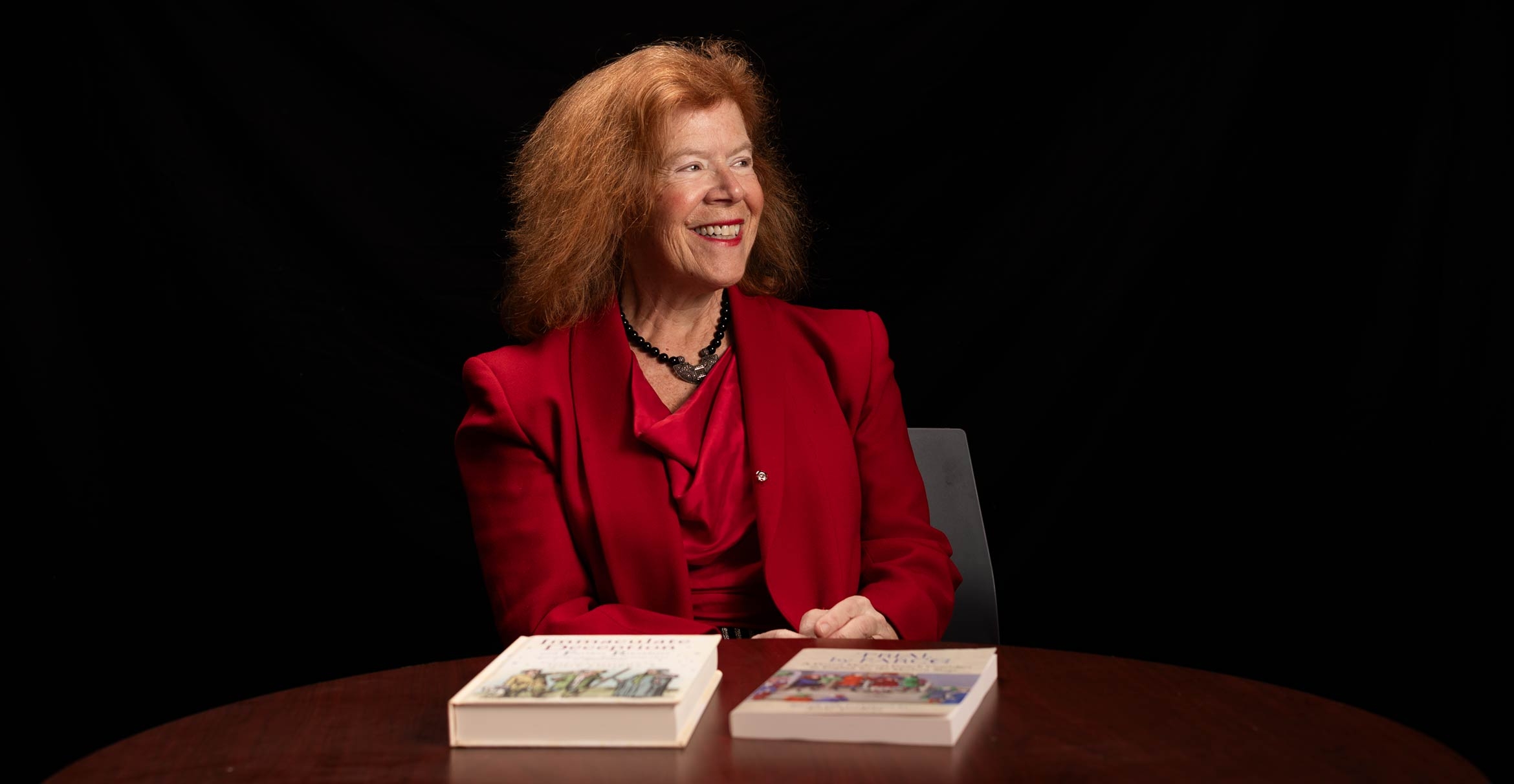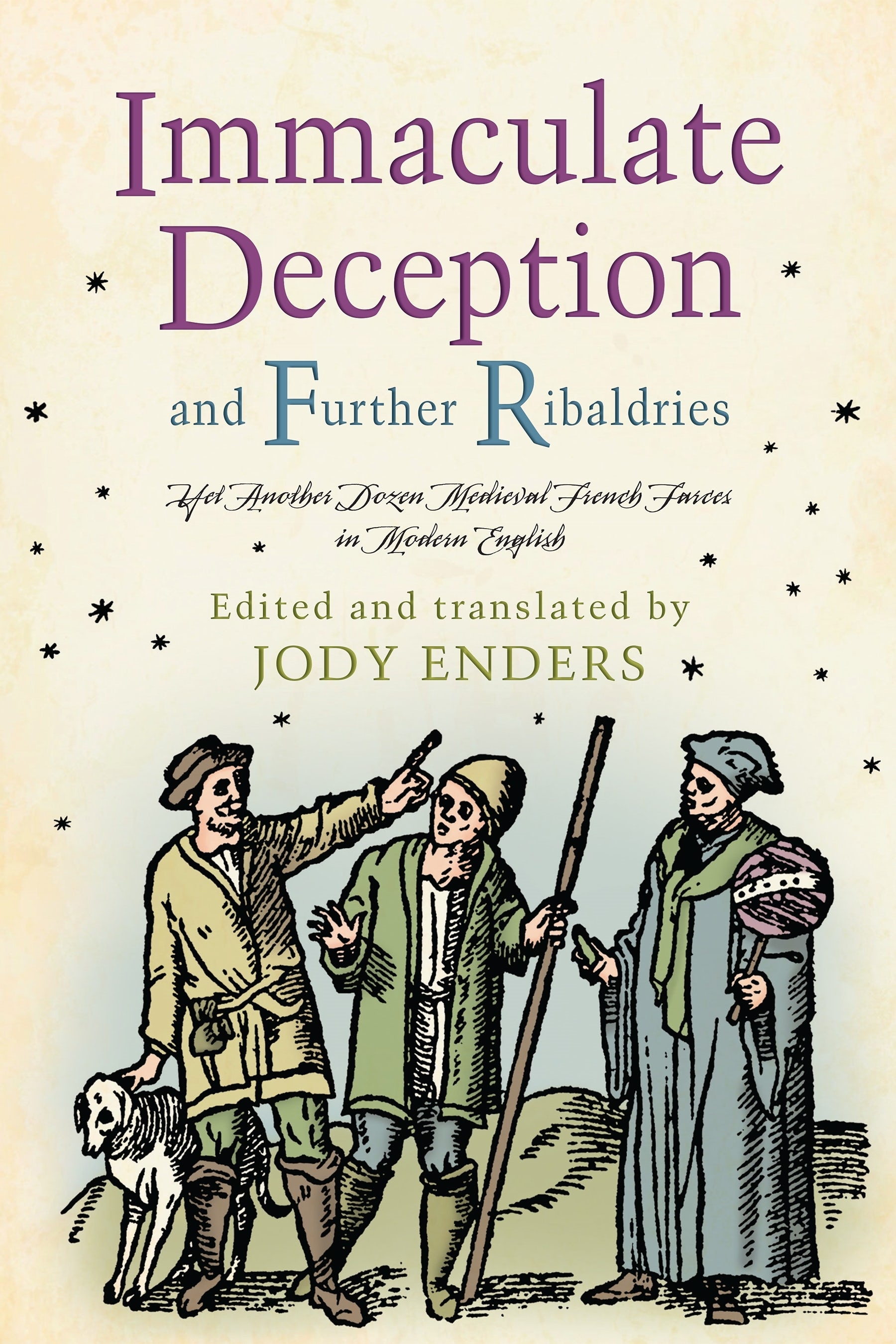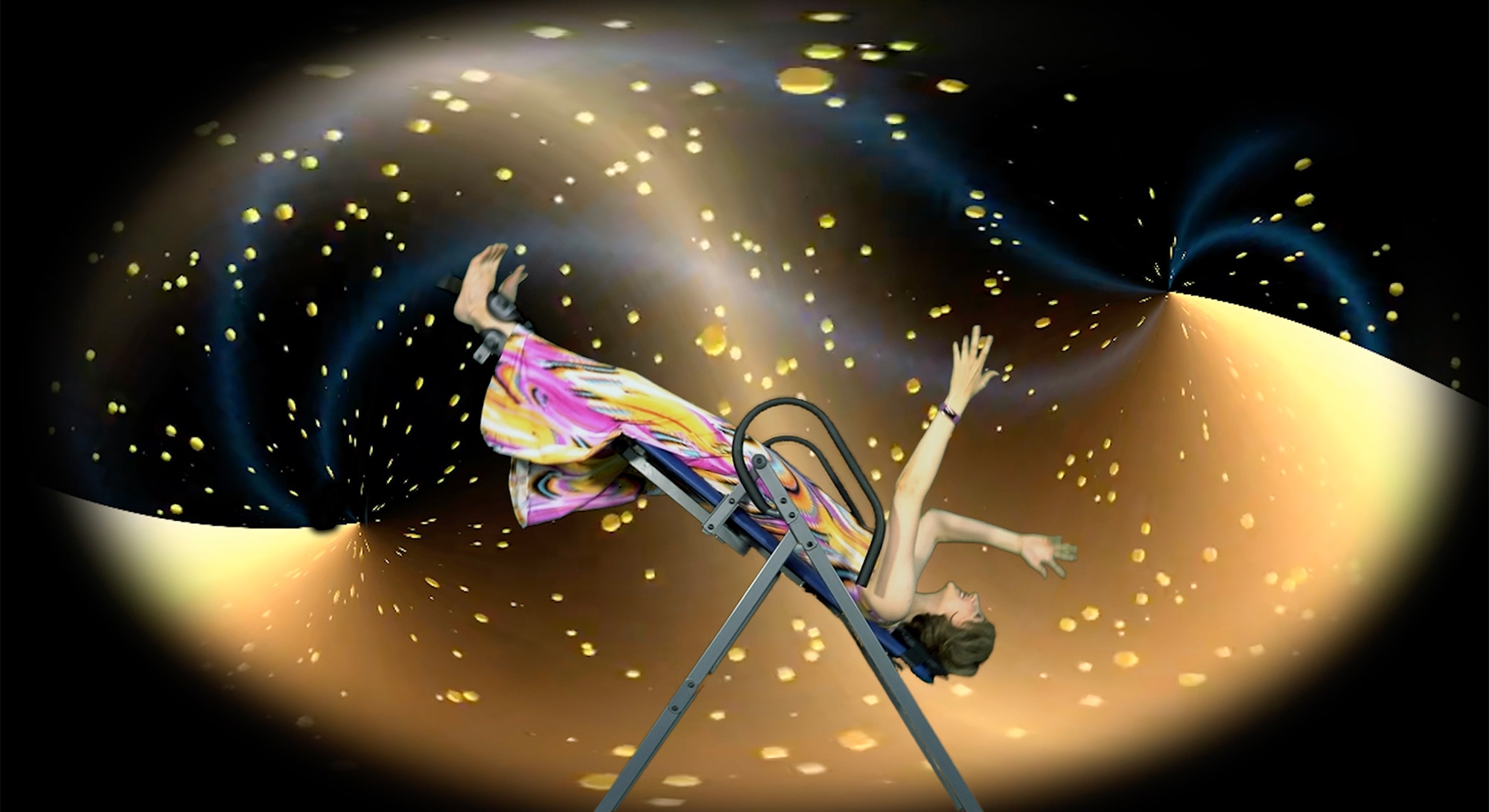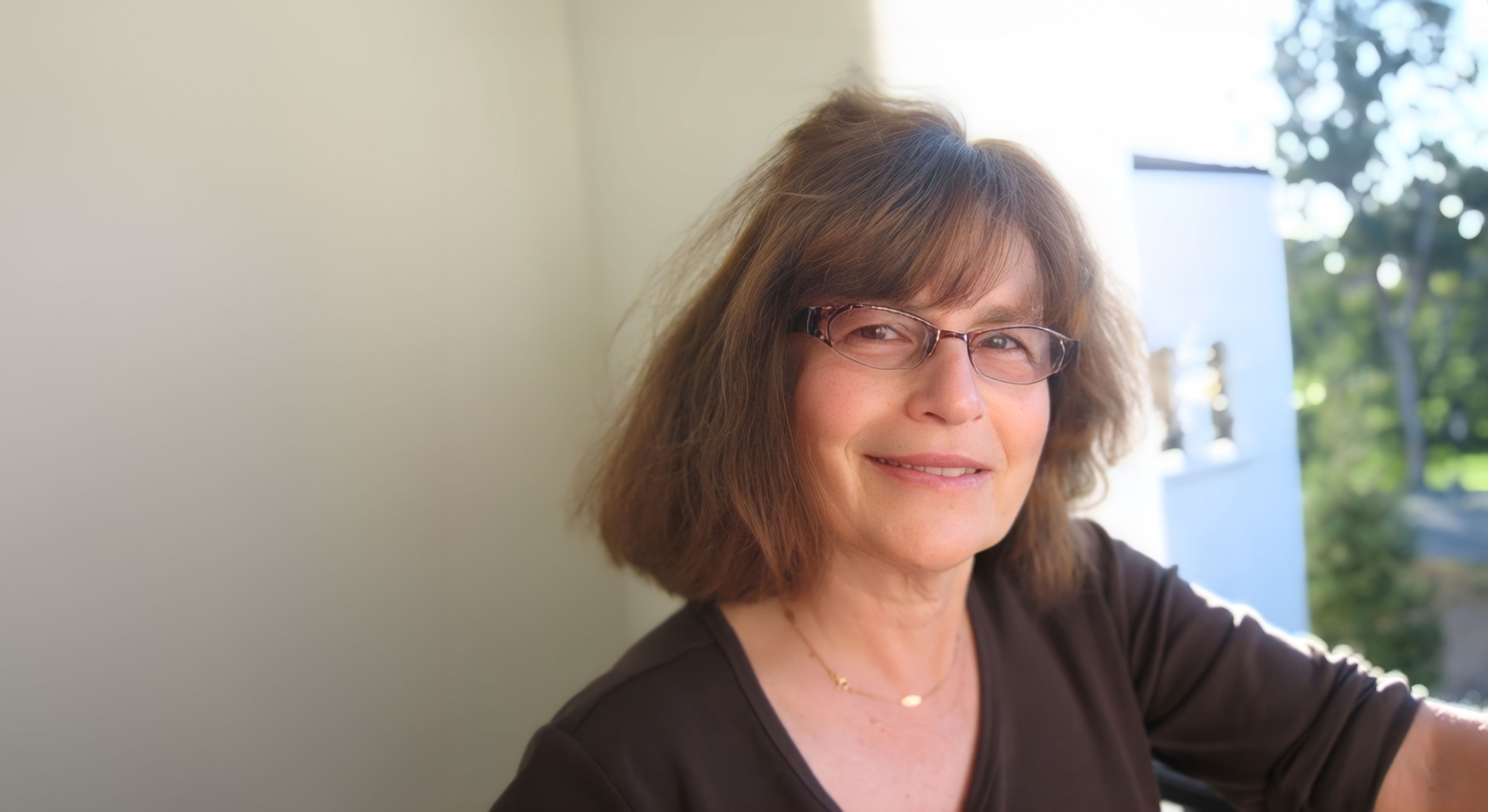
Raunchy, in-your-face and, most of all, hilarious — these were a few select descriptors deployed by Jody Enders when she considered the appeal of the stage comedies popular in France some 500 years ago. As a theater historian and professor of French at UC Santa Barbara, Enders was eager to introduce her students to such irreverent verse and attendant stagecraft. Problem was, almost none of the plays had been translated to English from their original Middle French. So she decided to do it herself.
Her first volume of translated plays, “The Farce of the Fart and Other Ribaldries,” was published in 2011. Since then, she’s published three more volumes, each with 12 plays, and is working on a fifth. The Modern Language Association (MLA) recently recognized her ongoing dedication to the project, honoring Enders with its Lois Roth Award for translation of a literary work for the collection’s third volume, “Immaculate Deception and Further Ribaldries: Yet Another Dozen Medieval French Farces in Modern English.”
“It’s especially rewarding to have been recognized by a foundation that exists to promote and encourage dialogue across national, linguistic and cultural boundaries,” Enders said.
“I have plans for maybe eight volumes total,” she added. “The farces were marketplace theater, and while virtually unknown to us, they were extremely popular in their day. More than 200 extant plays survive in France, which is more than in any other European vernacular.”
For “Immaculate Deception,” the MLA’s selection committee praised not only Enders’s translation skills but also her artistic contributions to the scripts as she adapted them with stage notes and suggested musical accompaniment, according to the award statement. “The volume masterfully unites technical translation prowess, scholarly rigor and guffaw-inducing creative humor that capture the timbre of these uncomfortably entertaining plays.”

These comedies “skewer everyone and everything, especially priests, monks, lawyers, healers and bickering husbands and wives,” Enders said. “If the Middle Ages and Renaissance could be said to have had sitcoms, these were it.”
“What started out as pedagogy has morphed into something artistic, which I find myself able to do only from having spent so much time as a literary critic or, really, a theorist/historian/philosopher of the medieval theater,” Enders added. “I've lived in that world for about 40 years.”
While Enders has worked mostly in the scholarly realms of that world, many of her creative breakthroughs have occurred while collaborating directly with the artistic community dedicated to bringing words alive onstage.
“Translating these comedies, you have to imagine what the whole experience might have been like live in-person — the scripts are teeming with mimed interludes, popular music, dancing and the like,” she said. “This is the part of my brain that, while thrilled to think about art, has always longed for an opportunity to create it. That's the magic of theater. You can take even a bunch of male-authored, misogynistic works and make them funny today by doing what theater always invites us to do: interpret, inflect and adapt.”
The Lois Roth Award marks Enders’s second MLA prize; her first, the Aldo and Jeanne Scaglione Prize for French and Francophone Literature, came in 1992 for “Rhetoric and the Origins of Medieval Drama,” her theory about the emergence of medieval drama. The prize is awarded annually for an outstanding literary or linguistic study, critical edition of an important work or critical biography.
Keith Hamm
Social Sciences, Humanities & Fine Arts Writer
keithhamm@ucsb.edu




